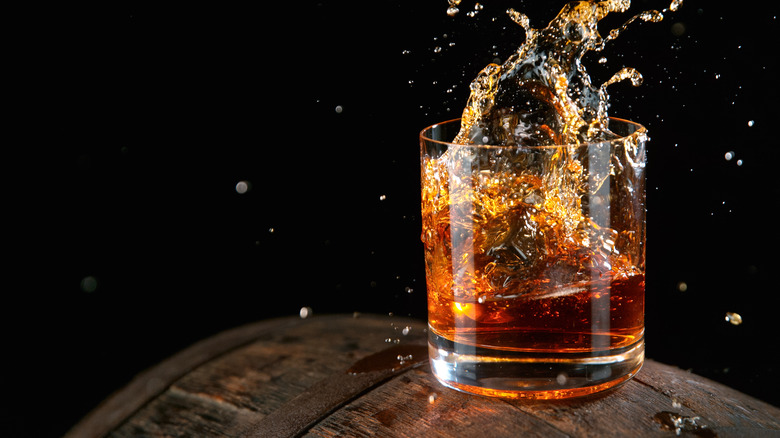Why Some Whisky Experts Hate The Word 'Smooth'
A litany of descriptive words get overused in the English language. Unfortunately, this is often to the user's detriment. The repeated use of certain words (Inconceivable!) can ultimately lead to the loss of their original power. Vague terms like "angry," "sad," "nice," or even "beautiful" are often overused unconsciously as we have simply accepted them as the general descriptors of our everyday vernacular, per Tomedes. Even those of us in the space of food and drink writing are not immune to leaning on the same words or turns of phrase. Umami, anyone? According to Grammarly, words or phrases such as "cooked to perfection," "mouthfeel," "tasty," and "authentic" are all used with great frequency when food is discussed online. Sometimes these are apt descriptors, but we can all agree that we see them an awful lot.
Though, when it comes to whisky, one word above all others can raise hackles should it fall innocently from your mouth. "What do you think of the new blend?" "I like it. It's smooth." To some whisky experts and distillers, "smooth" is the worst word you could use to describe a drink. The Daily Beast states that "smooth" is so overused that some whisky experts view it as an indicator to undervalue the speaker's opinion and claim their palate is underdeveloped. While that seems unnecessarily harsh, there is a certain logic behind this criticism.
Don't call whisky smooth
Smoothness in alcoholic spirits has not always been the popular characteristic it is today. According to Punch, Sir Francis Bacon described smooth liquor as a "dull, dead drink" back in the mid-1600s. The desire for a smooth drink necessitates the desire for ease and comfort over discomfort and discovery. Smoothing a liquor removes character by dulling the often intentionally intense flavors designed by the distiller. And considering that virtually all whisky and spirits have an ABV of above 50%, drinkers should not rightly expect their beverage to be smooth as a cold glass of sweet tea, per Uproxx.
Yet, "smooth" is still widely utilized, even amongst whisky industry insiders. As The Daily Beast points out, during the 13 years of Prohibition, the American palate forgot what proper alcohol tasted like. As a result, the market yearned for drinks that provided buzz without tasing remotely like alcohol. The solution was to use sugar and other additives to dilute the liquor's natural bite, making drinks easier to consume. And it's a trend that continues today — look at the rising number of hard seltzers or all the fruity flavors of Smirnoff drinks.
But tastes can change, and no one wants to drink something they find unpleasant. However, perhaps experts can view smoothness from an amateur's perspective of not quite being able to properly articulate a whisky's flavor to the fullest extent, per Rabbit Hole Distillery. That leaves the door wide open for further discovery.

